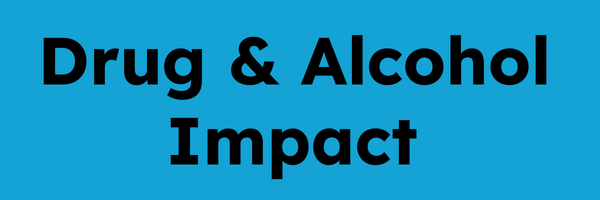Four universities shape new approaches to student drug and alcohol use

Tracy Lumb, Senior Project Manager Wellbeing for SOS-UK shares her thoughts on the first 18 months of the Drug & Alcohol Impact pilot.
In October 2019, I joined SOS-UK to lead the Alcohol Impact accreditation programme. Through initial conversations with both university wellbeing teams and students’ unions, it quickly became apparent that although there had been significant progress in promoting responsible drinking in students, there was very little good practice around student drug use and we were asked to help.
Historically universities and students’ unions had taken a zero-tolerance approach to student drug use, yet we were continuing to see drug-related harm and no positive actions were being taken to address this. We, therefore, with the help of our advisory board, consisting of representatives including UUK, Public Health England, Students Minds, AMOSHEE, Release, SSDP and Bristol University designed the Drug & Alcohol Impact accreditation programme. An accreditation programme that not only embedded social norms of responsible drinking on our campuses but also refocused the conversation on drugs towards reducing harm. The only accreditation programme in the UK addressing both alcohol and drug use in students, it builds upon the success of Alcohol Impact, which since 2015 has supported 31 university and students' union partnerships to create lasting positive change around responsible alcohol consumption.
We launched the programme as a two year pilot in October 2020 with our four pilot partnerships:
· University of Leeds and Leeds University Union
· Keele University and Keele Students’ Union
· University of the West of England and The Students’ Union at UWE
· University of East Anglia and University of East Anglia Students’ Union
Despite Covid-19 meaning that student life as we know changed overnight, we have seen new policies and practices in our pilot partnerships alongside innovative interventions improving student safety. Some of these include:
· An alcohol and drugs peer support group using trained student volunteers who will be able to offer confidential support to their fellow students (due to be launched later this year).
· Introduction of drug harm reduction advice during freshers’ fairs.
· New drug harm policies that have been co-written and signed by both senior management from the university and the students’ union.
· Case studies of students that would have historically been subject to only disciplinary action offered support to address their drug use.
· The designing of an intervention to educate students on the risks of poly-drug use.
· Production of a video “let’s talk about drugs”, designed to offer harm reduction advice. The content of the video was agreed by both the students’ union and the university.
· A dedicated drug and alcohol advisor within a University’s welfare team.
“UWE Bristol and The Students’ Union at UWE signed up to the pilot cohort, as a fantastic opportunity to progress our Alcohol Impact work, and give us a framework for undertaking interventions and messaging around drugs. We have utilised the Drugs and Alcohol Impact workbook to develop new programmes of work. For example, taking part in the Student Drug and Alcohol Survey (Nov 2021), we have gained further insight into the attitudes, opinions and experiences of students around drugs including alcohol. As a result, we are developing a new video series talking about drugs, the consequences and particular harm reduction advice. We are excited for our first audit this May to build on this work in the next academic year” Rachel Colley, Community Manager, The Students' Union at UWE.
I am delighted to be involved in the Universities UK (UUK) task force into student drug use this year. SOS-UK firmly believe that Universities should be developing a proactive approach where student health and safety is at the heart of addressing student drug use, and we look forward to our work on this pilot informing UUK’s emerging recommendations to UK universities on this topic.
We congratulate our pilot partnerships on what they have achieved, which has truly put them at the forefront of this new approach to managing student drug use.


